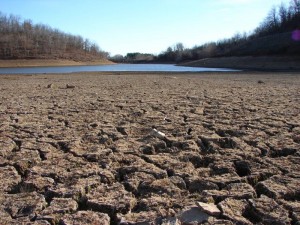Mitchell Chadwick Article Published By The Rocky Mountain Mineral Law Foundation Quarterly Report: California’s New Groundwater Legislation
The Following Article From Mitchell Chadwick Appears In The Upcoming Issue Of The Rocky Mountain Mineral Law Foundation’s Quarterly Report:
California’s New Groundwater Legislation
Until very recently, California was the only Western state without statewide regulation and management of groundwater resources. Although numerous local agencies were authorized to assume a groundwater management role within their respective jurisdictions, regulation of groundwater varied widely throughout the State. That changed on January 1, 2015, when California’s new Sustainable Groundwater Management Act (“Act”) (Cal. Water Code § 10720 et seq.) became effective. The Act represents the first step in the lengthy process of creating a comprehensive system of monitoring, controlling and curtailing groundwater extractions in California. For many mining companies operating in California’s Central Valley and other areas subject to chronic groundwater overdraft, the new legislation can result in imposition of new operating restrictions and associated increases in the cost of doing business.
While the Act establishes no quantitative or qualitative standards for groundwater extractions and imposes no substantive requirements on groundwater users, it establishes a State policy requiring all groundwater resources to be managed “sustainably.” “Sustainable groundwater management” is generally defined as the management and use of groundwater that can be maintained without causing an “undesirable result” for at least a 50-year planning and implementation horizon. Cal. Water Code § 10721. “Undesirable results” under the Act include significant and unreasonable depletion of supply, significant and unreasonable reductions in groundwater storage, and/or actions resulting in seawater intrusion, water quality degradation, land subsidence, and/or depletion of interconnected surface water. Id.
The centerpiece of the Act is the creation of local groundwater sustainability agencies (“GSAs”) and the requirement that GSAs develop and implement “groundwater sustainability plans” for California’s high- and medium-priority groundwater basins by the deadlines set forth in the Act. To that end, the Act places initial responsibilities on the California Department of Water Resources (“DWR”) to create the regulatory framework that GSAs would subsequently rely on in developing and implementing local groundwater management programs. In particular, the Act requires DWR, among other things, to (1) adopt regulations for evaluating local groundwater sustainability plans and their implementation (by June 1, 2016); (2) analyze how much water is available for groundwater replenishment in the State (by December 31, 2016); and (3) publish Best Management Practices (“BMPs”) for the sustainable management of groundwater that can be included in local groundwater sustainability plans (by January 1, 2017). Cal. Water Code §§ 10722.4, 10729, 10933 10733.2. The Act also provides for State oversight and allows for State intervention when necessary to ensure that local authorities manage groundwater basins in a sustainable manner.
Once DWR adopts the necessary rules and regulations, local agencies within high- and medium-priority basins must choose or establish a GSA by June 30, 2017. Cal. Water Code §§ 10724, 10735.2(a)(1). GSAs then will have until 2020 (for basins subject to critical conditions of overdraft) or 2022 (for other high- and medium-priority basins) to develop groundwater sustainability plans and until at least 2040 to “achieve sustainability” within their respective basins or subbasins. Cal. Water Code §§ 10720.7, 10727.2. The Act grants GSAs a broad array of authorities, including adoption of rules and regulations on groundwater extraction and use, investigatory and inspection powers, the authority to require registration of wells and use of water-measuring devices, imposition of operating restrictions on groundwater extractions, imposition of fees and penalties, enforcement powers, etc. Cal. Water Code §§ 10725.2, 10725.4, 10725.8, 10726.4, 10730, 10730.2, 10732.
Although groundwater sustainability plans do not supersede local land use authority, the new legislation requires cities and counties to consider groundwater sustainability plans when adopting or substantially amending their general plans. Cal. Gov. Code § 65350.5(a). Also, all relevant state agencies, including the State Water Resources Control Board, Regional Water Quality Control Boards, California Department of Fish and Wildlife, etc., must consider groundwater sustainability plans when revising or adopting their policies, regulations and criteria, and when issuing orders or determination. Cal. Water Code § 10720.9, 10735.4.
The Legislature explicitly stated that the Act would not modify rights or priorities to extract and use groundwater. Cal. Water Code § 10720. However, it is not at all clear how local agencies would be able to ensure that groundwater usage is sustainable without altering the current groundwater rights that landowners have to reasonable use, especially in overdrafted basins. Further, although the words “sustainable” and “sustainability” are defined in the Act, there is no case law testing these definitions or applying them to specific factual situations involving groundwater. Accordingly, the Act’s implementation would likely be subject to litigation, which may delay and possibly halt the formation of GSAs and implementation of groundwater sustainability plans.
Given the Act’s lengthy implementation schedule and likely litigation, the Act’s practical implications for California’s groundwater users will not be known for at least several years. However, mining operations in high- and medium-priority basins that rely on groundwater for their operations (or whose operations may impact groundwater levels in the vicinity) should evaluate and document their groundwater management practices now and also should start developing alternatives if current extraction practices are impacted. When GSAs are established and the process of developing groundwater sustainability plans begins, mine operators will need to work with a local GSA to ensure that the mine’s current groundwater usage and practices are incorporated into the local sustainability plan and not negatively impacted.
The foregoing article was authored by Chris Powell of Mitchell Chadwick.

